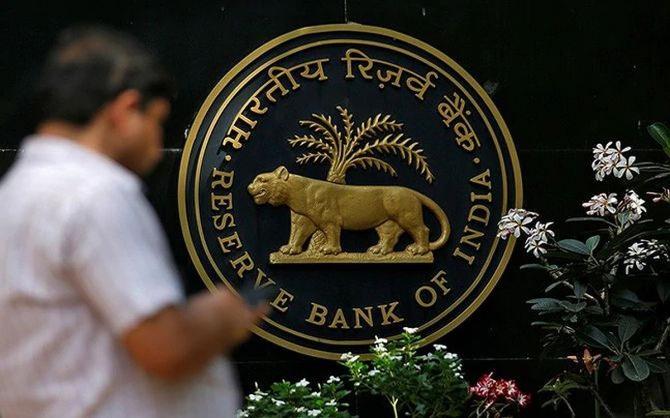The Reserve Bank of India (RBI) brass, including its Governor Sanjay Malhotra, on Tuesday told a Parliamentary panel that it was “optimistic” about the impact of the US tariffs on the Indian economy and, in long-run, it could benefit the country due to dipping trade relations between the US and China.

The Public Accounts Committee (PAC), chaired by Congress’ Lok Sabha member KC Venugopal, held two meetings on Tuesday, one with top RBI officials and the other with the Department of Financial Services (DFS) and managing directors of some of the top nationalised banks.
‘Banking reforms’ was the overarching theme of the two meetings.
At the panel’s meeting, Governor Malhotra and Deputy Governor Rajeshwar Rao were present.
At the second meeting, the DFS Secretary and MDs of SBI, Indian Bank, Canara Bank, IDBI and Punjab National Bank were present.
On tariffs, the RBI Governor and Deputy Governor told the panel that the central bank is still analysing the impact, but their outlook was positive, that they do not see any big impact on the economy.
The DFS told the panel that the government could bring the ‘Banning of Unregulated Lending Activities Bill’ in the next session of Parliament, to check public lending by individuals or organisations that are neither registered under any law, nor authorised by the RBI or other regulators.
Panel members also wanted to know why the DFS had approved an infusion of ₹8,000 crore into the State Bank of India in 2018 as part of its recapitalisation exercise without the country’s biggest lender asking for such funds.
A Comptroller and Auditor General (CAG) report presented in Parliament in 2023 had also flagged the issue.
The panel, which has 22 members, sought to know from the DFS and MDs of nationalised banks about the paucity of banks in naxal-affected areas and north eastern states.
The government and banks said these areas will also have a bank branch within five kilometres within a year.
On non-performing assets, the panel was told that it is declining.
The panel said defaulters should be categorised, an early warning system put in place for bigger defaulters, and banks should have an entrepreneurial mind-set and not a bureaucratic one in dealing more humanely in cases of students loans, loans to farmers and fisher-folk.
The banks also addressed questions on recruitment of Hindi speaking bank officers deployed in non-Hindi speaking states, clarifying that earlier these officers were trained to speak and understand other languages, but now this lacuna was being addressed at the recruitment level.
The DFS apprised the panel of the government’s measures towards financial inclusion and outreach, including the Mudra Scheme, PM Jan Dhan Yojana, Vidyalakshmi scheme and Vishwakarma scheme.
Members sought details of the 520 million Mudra accounts, including how many people had multiple accounts.
The government representatives said they would furnish a written reply in the next meeting.
The panel members also flagged structural problems in the Debts Recovery Appellate Tribunals (DRATs) and National Company Law Tribunal (NCLT) leading to delay in solving cases.
Members posed questions relating to writing off loans after calamities, to which they were told that loans of the deceased are written off while repayment schedules are reviewed and deadlines extended for the injured.
Members also spoke about the rising number of financial frauds, including cyber frauds and digital arrest.
They called for strengthening of the regulatory mechanism of UPI, akin to the telecom sector.